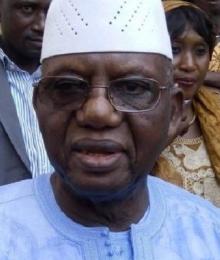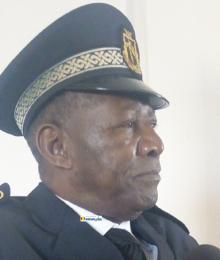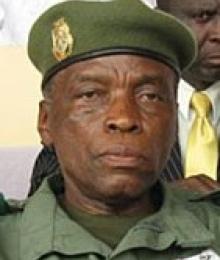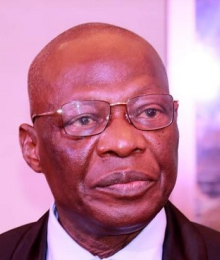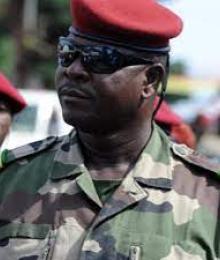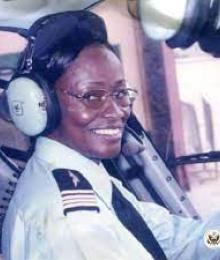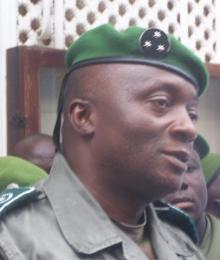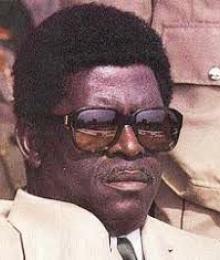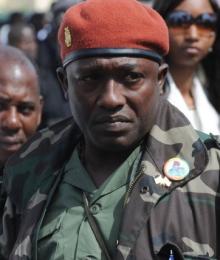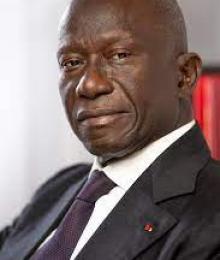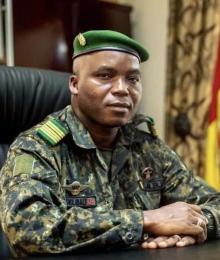
Sadiba Koulibaly was a Guinean general officer who played a crucial role in his country's recent history. As the second-in-command of the National Committee for Reconciliation and Development (CNRD), he was one of the key players in the September 5, 2021 coup that overthrew President Alpha Condé. Subsequently, he held the strategic position of Chief of Staff of the Guinean Armed Forces for nearly two years.
However, his career took a dramatic turn when he was briefly appointed Minister of Urban Planning, then sent as chargé d'affaires to the Guinean embassy in Cuba. His controversial return to Guinea in May 2024 led to his arrest, expedited trial, and sentencing to 5 years in prison. The end of his life was marked by his sudden death in detention on June 22, 2024, under circumstances that still raise numerous questions and controversies.
Introduction
Sadiba Koulibaly, also known as Sidiba Koulibaly, was a Guinean general officer whose tumultuous career marked his country's recent history. A central figure in the 2021 coup in Guinea, he held key positions in the army and government before experiencing a spectacular fall. His journey illustrates the political and military turbulence of contemporary Guinea.
Education and Military Training
Although the precise details of his initial training are not widely documented, Sadiba Koulibaly underwent rigorous military training that allowed him to climb the ranks of the Guinean army. His training likely included:
- Basic training at a Guinean military academy
- Advanced courses in leadership and military strategy
- Possibly training abroad, as is often the case for senior African officers
His academic background and military training laid the foundation for his future career in the Guinean armed forces.
Military Career
Sadiba Koulibaly's military career was marked by a steady rise through the ranks of the Guinean army:
- Early career as a junior officer
- Progression through various command positions
- Attainment of the rank of general, testifying to his skills and growing influence
Throughout his career, Koulibaly built a reputation as a competent and loyal officer, earning the trust of his superiors and the respect of his subordinates.
Role in the September 5, 2021 Coup
September 5, 2021 marks a decisive turning point in Sadiba Koulibaly's career. On that day, he played a central role in the coup that overthrew President Alpha Condé. As the number two of the National Committee of Reconciliation and Development (CNRD), led by Colonel Mamadi Doumbouya, Koulibaly became one of the faces of the new military junta in power.
His responsibilities included:
- Coordinating military operations during the coup
- Representing the CNRD in negotiations with regional and international bodies
- Managing relations with opposition political leaders
It was Koulibaly who led the Guinean delegation during the meeting with ECOWAS President Nana Akufo-Addo after Guinea's suspension from this regional organization.
Chief of General Staff of the Armed Forces
On October 12, 2021, Sadiba Koulibaly was appointed Chief of General Staff of the Guinean Armed Forces, succeeding General Namory Traoré. This appointment consolidated his position as one of the strongmen of the new regime.
In this crucial role, Koulibaly was responsible for:
- Reorganizing and modernizing the Guinean armed forces
- Managing national security issues
- Coordinating with other branches of government on defense matters
He held this position for nearly two years, until May 9, 2023, playing a key role in stabilizing the country after the coup.
Minister of Urban Planning, Housing and Land Management
May 9, 2023 marks a new turning point in Koulibaly's career. He is appointed Minister of Urban Planning, Housing and Land Management, in charge of Recovering Spoiled State Domains. This appointment seems to indicate a transition to a more civilian role within the government.
However, this ministerial mandate is very short-lived. The very next day, on May 10, 2023, Koulibaly is dismissed by presidential decree and replaced by Ibrahima Kalil Condé, former governor of Kindia. The reasons for this lightning dismissal were never clearly explained, fueling speculation about possible tensions within the ruling junta.
Ambassador of Guinea to Cuba
After his brief stint in government, Sadiba Koulibaly was appointed chargé d'affaires at the Guinean embassy in Cuba in October 2023. This appointment, which can be seen as a form of diplomatic exile, removed him from the center of power in Conakry.
During his mandate in Havana, Koulibaly was responsible for:
- Representing Guinea's interests to the Cuban government
- Promoting bilateral cooperation, particularly in health and education
- Managing the day-to-day affairs of the embassy
This diplomatic post marked a radical change from his previous military and governmental functions.
Controversial Return from Cuba
Sadiba Koulibaly's return to Guinea in May 2024 is surrounded by controversy. According to his own statements during his trial, he returned to Conakry on May 22, 2024, without having obtained prior authorization.
The key events of this return are:
- Arrival in Conakry on May 22, 2024
- Meeting with the Minister of Foreign Affairs, Dr. Morissanda Kouyaté, on May 27
- Tense phone conversation with President Mamadi Doumbouya on June 4
Koulibaly claims to have sought to meet the president to discuss personal problems, but this request seems to have been poorly received by the authorities.
Arrest and Conviction
On June 4, 2024, shortly after his phone conversation with President Doumbouya, Sadiba Koulibaly is arrested at his home by a military detachment. He is accused of "desertion abroad and illegal possession of weapons."
His trial takes place quickly before the military court of Conakry:
- Trial begins on June 13, 2024
- Verdict rendered on June 14, 2024
- Sentenced to 5 years in prison
During his trial, Koulibaly accuses the Minister of Foreign Affairs, Dr. Morissanda Kouyaté, of having "inflamed" the situation with President Doumbouya. He is also discharged from the army and demoted.
Death in Confusing Circumstances
On June 25, 2024, the military court prosecutor's office announces the death of Sadiba Koulibaly, which occurred on June 22. This late announcement raises many questions and suspicions.
According to the official statement:
- The death allegedly occurred on June 22, 2024
- A death certificate was reportedly issued
- The autopsy report attributes the death to "significant psycho-trauma and prolonged stress leading to major cardiac arrhythmia"
However, the lack of transparency surrounding the exact circumstances of his death fuels speculation.
Controversy Surrounding His Death
Sadiba Koulibaly's death provokes strong reactions and raises many questions:
- Why was the official announcement made only three days after the presumed death?
- Where exactly was he detained after his conviction?
- Why were his lawyers unable to contact him after the verdict?
The Guinean Bar Association, in a statement on June 27, 2024, demands:
- The opening of an independent investigation into the causes and circumstances of Koulibaly's death
- Explanations about Koulibaly's place of detention and that of other military personnel involved in the case
- The immediate release of military personnel acquitted during the trial but still detained
Koulibaly's family also faces difficulties in recovering his body and organizing his funeral, which adds to the controversy.
Private life
Sadiba Koulibaly was a man deeply rooted in his family values, generosity, and religious faith. His private life was marked by a strong sense of sharing and community, as evidenced by his gesture of providing free housing to several families in his various properties. His religious devotion was manifested not only in his personal life but also in his philanthropic actions, such as initiating mosque construction projects and distributing thousands of copies of the Quran to military personnel. These acts confirm that Koulibaly placed great importance on spreading his faith and supporting his community, thus integrating his religious convictions and humanitarian values into all aspects of his private life
Conclusion
The life and career of Sadiba Koulibaly illustrate the complexities and dangers of political and military life in Guinea. His rapid rise to the top of power after the 2021 coup, followed by his brutal fall and controversial death, raise many questions about the nature of the regime in place and respect for the rule of law.
His journey, from respected military leader to convicted prisoner, highlights the fractures within the ruling junta and the challenges of political transition in Guinea. The controversy surrounding his death underscores the importance of transparency and accountability in public affairs management.
Sadiba Koulibaly's legacy will likely remain ambiguous, mixing his role in overthrowing a regime considered authoritarian with the troubling circumstances of his own end. His story will undoubtedly serve as a cautionary tale about the dangers of political instability and arbitrary power in West Africa.











